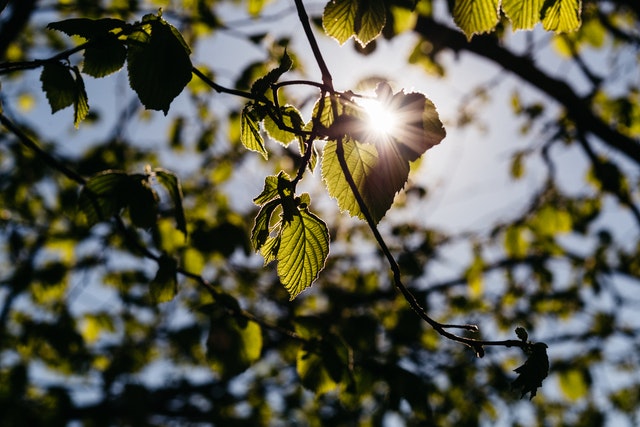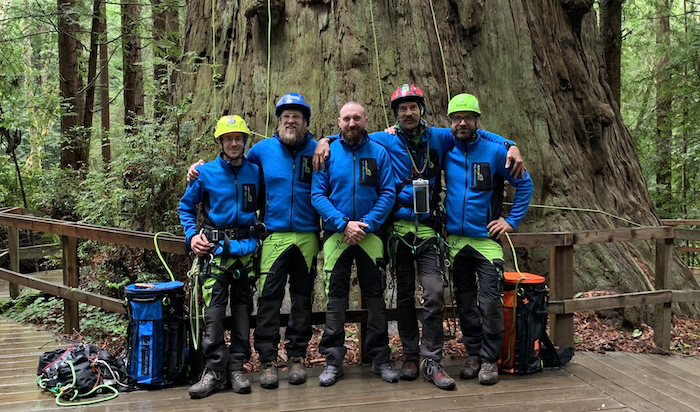
As a homeowner in the Portland area with a mature tree in your yard, you understand the value and beauty that trees can bring to your property.
But, like any living thing, trees need particular care to stay healthy and strong. So, it's essential to ensure that your trees are well-maintained to protect both your property and the surrounding environment.
An arborist can help you keep your trees in tip-top shape and ensure their longevity — however, it can be tough to know exactly what questions to ask them. Here are five questions you can ask your arborist to make sure your trees receive the best possible care.
Can you assess the health of my tree?
A certified arborist is trained to diagnose tree health problems and identify potential issues before they become major problems. By asking this question, you can gain insight into the experience and qualifications of the arborist you are considering working with.
When assessing the health of your tree, an arborist will typically look for signs of pests, disease, or structural damage. They may also evaluate the soil quality, drainage, and overall environmental conditions around the tree.
What's your approach to tree care?

Tree care is about more than just trimming and pruning. It's about preserving the health and lifespan of your tree.
Ask your arborist what their approach to tree care is. They should be taking a holistic approach that considers factors like tree health, soil quality, and the environment. — But, what are these? You may ask. Here’s a closer look:
- Tree health: Your arborist will assess the overall health of your tree to determine if there are any issues to be addressed, such as:
- Signs of disease
- Insect infestation
- Structural problems
- Soil quality: The soil in which a tree is planted is crucial to its growth. Your arborist will evaluate the soil's pH level, nutrient content, and texture.
- Environment: The environment can also impact the health of your tree. Your arborist will consider factors such as sunlight exposure, moisture levels, and air quality.
What can be done to preserve my tree's health?
If your tree is showing signs of decline or you’re concerned about its long-term health, it's important to take steps to preserve it.
Your arborist can provide recommendations fitting the specific needs of your tree, for example:
- Pruning: Regular pruning can help remove dead or diseased branches, improve air circulation, and promote healthy growth!
- Fertilization: Trees need specific nutrients to thrive, and fertilization can help replenish those nutrients in the soil that may be lacking.
- Pest management: If your tree is being attacked by pests, your arborist can recommend treatment options to prevent further damage.
- Watering: Trees require adequate water to survive, and your arborist can determine the right watering schedule for your tree's needs.
What are the signs that my tree needs to be removed?
Preserving trees will always be your arborist's top priority. However, there are situations where removal may be necessary. These are some signs that your tree may need to be removed:
- Severe pest or disease infestation that cannot be treated
- Extensive structural damage, such as large cracks or split trunks
- Significant leaning that poses a safety hazard to people or property
- Overcrowding that is causing damage to other trees or property
- Dead or dying trees that pose a risk of falling or causing property damage
If you suspect that your tree may need to be removed, it's important to consult with a tree care professional to assess the situation. At Oregon Tree Care, we will evaluate your tree's health and condition to determine if removal is necessary, and we’ll provide recommendations for replacement trees if needed.
Which tree should I plant in my backyard?
Choosing the right tree to plant in your backyard can be a daunting task, but there are several factors your arborist will ask you to consider to make the process easier. For instance:
- Consider your climate: Different species of trees have different temperature and moisture requirements.
- Think about the size of your yard: Some species of trees can grow to be very large. The best tree is the one that fits comfortably in your space without overcrowding other plants or structures.
- Determine your soil type: Some species of trees prefer sandy soil, while others prefer clay soil.
- Consider the purpose of the tree: Are you looking for a tree that will provide shade, privacy, or just aesthetic appeal? Trees are different from one another, choose the one that aligns with your interests.
- Research local regulations: Some areas have regulations regarding the types of trees that can be planted in residential areas. Make sure that the tree you choose is allowed in your area.
Looking for more answers? We’ve got you covered!

If you're still unsure who to ask about which tree to plant in your backyard or how to preserve the health of your trees, consult with our tree care professionals today!
At Oregon Tree Care, we can provide recommendations for trees that are well-suited to the climate and soil conditions in Portland, as well as your specific needs and preferences. We can also give you guidance on planting and caring for your new and old trees to ensure they thrive for years to come.
We're committed to preserving the trees in our community and providing our clients with high-quality, sustainable tree care services.
Call (503) 929-9437 or contact us online to get a free virtual tree assessment!